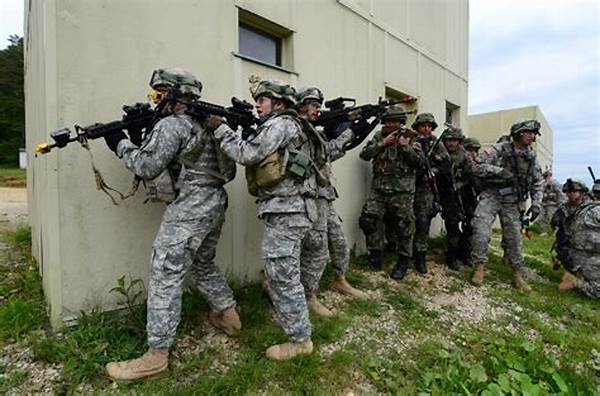In contemporary global security dynamics, multinational coalition military operations have emerged as a critical element in addressing complex international crises. These operations are typically constituted of multiple nations collaborating towards a common objective, often mandated by international organizations such as the United Nations or NATO. The effectiveness of such operations is dependent on seamless coordination, mutual trust, and shared strategic goals among the participating nations.
The Genesis of Multinational Coalition Military Operations
The concept of multinational coalition military operations is rooted in history but gained prominence in the post-Cold War era. As global threats became multifaceted, no single nation could effectively address challenges like terrorism, piracy, or humanitarian crises alone. Therefore, multinational coalition military operations arose as a pragmatic solution, pooling resources and expertise from various nations. These operations not only enhance military effectiveness but also bolster diplomatic relations among the allied countries. Through these synergistic endeavors, nations can achieve objectives that might be insurmountable individually.
Key Participants in Multinational Coalition Operations
Multinational coalition military operations often witness participation from a diverse array of countries. Each nation contributes its military assets, personnel, and expertise. These operations necessitate robust diplomatic and military frameworks to coordinate actions across different command structures and cultures. Communication, interoperability, and logistical support are critical components that determine the success of such operations. Coalition partners must align their national interests with coalition goals to ensure cohesive and unified operations.
Strategies and Challenges in Multinational Coalition Operations
To maximize the efficacy of multinational coalition military operations, strategies must be explicitly defined and communicated. The operations often face challenges, such as language barriers, differing military doctrines, and variations in technological proficiency. These hurdles necessitate clear command structures and planning. Additionally, the operations must adapt to legal and ethical considerations stemming from diverse national legislative frameworks, thereby requiring meticulous diplomatic negotiation and consent.
The Importance of Multinational Coalition Operations in Modern Warfare
In an era where security threats transcend borders, multinational coalition military operations represent a strategic imperative. These operations facilitate rapid deployment of forces, collective defense, and burden-sharing among partner nations. By participating in such coalitions, countries can amplify their military capabilities, access shared intelligence, and foster international legitimacy. Such cooperation also serves as a deterrent to potential aggressors while promoting global stability and peace.
Coordination Mechanisms in Multinational Coalition Operations
Effective coordination is paramount in multinational coalition military operations. Joint command and control structures enable synchronized efforts towards the coalition’s objectives. The establishment of clear communication channels is necessary to avoid misunderstandings and to maintain operational integrity. Prioritizing interoperability through joint exercises and training can significantly enhance the coalition’s overall effectiveness and ensure a unified response during operations.
Evolution and Future Prospects of Multinational Coalition Operations
The landscape of multinational coalition military operations continues to evolve in response to global security dynamics. As technology advances, there will be increased opportunities for enhanced collaboration, including the utilization of cyber capabilities and unmanned systems. Future multinational coalition military operations are likely to become more integrated, leveraging artificial intelligence and other technological innovations to maintain strategic advantage and effectively counter emerging threats.
Summary of Multinational Coalition Military Operations
In summary, multinational coalition military operations represent a cornerstone of contemporary collective security mechanisms. These operations are designed to address a diverse range of global challenges by leveraging the strengths of participating nations. They provide a framework that supports not only military objectives but also political and humanitarian goals. Through multinational coalition military operations, countries can collaborate to safeguard peace, enhance international cooperation, and address shared security challenges. The continued evolution and refinement of these operations will be essential in navigating the complexities of future global conflict and maintaining international stability.





